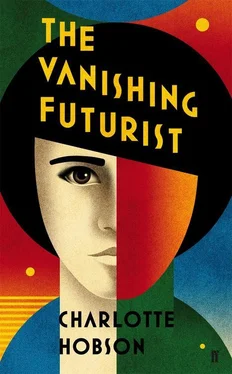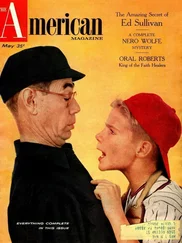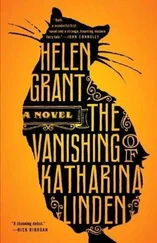‘Grisha, calm yourself. These patients are chained because they have consistently harmed themselves and others. It is unpleasant to see, but it is the only possible course of action.’ Sister Serafima shrugged. ‘If she is able to talk, one of the patients told me something about Slavkin’s disappearance that perhaps would interest you.’
She led us up to a powerfully built young woman who was sitting on her pallet and gazing blankly out of the window. Very gently, she took the woman’s hand in hers and spoke to her almost in a whisper. ‘Anna, my dear, don’t be afraid.’ The woman looked at her blankly. ‘These are good people, friends of our dear Nikita Gavrilovich. They want to hear about the day he went away. When I was not here. You remember, don’t you, Anna? Be brave and tell.’
Anna’s eyes swivelled and she caught sight of us. She began to whimper and sidle backwards on her bed. Her face had been horribly burnt and was covered in red scar tissue. I could hardly bear her expression of terror. ‘Hush,’ murmured Sister Serafima. ‘Calm yourself.’ And over her shoulder, to us, ‘It’s best not to look at her – look away.’
Pasha and I turned away and gazed down the hut. After a moment a croaky whisper emerged. ‘Are they truly his friends?’
‘Yes. They are searching for him. They love him.’
‘I remember what happened,’ she said hoarsely. ‘I’ll tell them, shall I?’
And so the story of Nikita’s last journey was told, in Anna’s poor, painful voice, while the inmates gazed dully at the ceiling and Grisha grunted and pulled at his chains.
‘It was the day that evil men came in and made misery for us. They said they were coming to help us but then they laughed and hit us and they frightened everyone and they took our food. They took my cloak and laughed and they beat Misha and they—’
‘Shh – you needn’t remember all of that.’
‘Nikita tried to stop the bad men. He stood in front of them and he spoke a long time to them, lots of words, all about his machine and the world and everything. He thought they were friends, but they weren’t friends. They were laughing at him and one of them hit him and he fell over. And then they made fun of him and pushed him and he banged against the wall, and they made him walk about and prodded him with their bayonets. And they said show us this machine then and he took them outside and I heard them say get in and he lay down in it and they did more laughing. And then…’ She sat up straight and turned towards us, and very cautiously I looked back at her, keeping my head bowed in case I frightened her again. ‘Then there was a very loud noise, it hurt my ears so much’ – she covered her ears to show us – ‘and shouting. And we didn’t see our Nikita again.’
‘What did the noise sound like?’
‘It – it sounded like the air splitting in two, crack! – and crack in my ears – like… like thunder right here in the room, like a gun…’
There was a pause.
‘And then you talked to the bad men, didn’t you, Anna?’ prompted Serafima.
‘Yes, and they said straight out to me, they said, “He’s gone away in his machine.” That’s the words they said. They didn’t say anything else, because they didn’t know about it like we do, do they, Sister? Nikita didn’t tell them everything that he told us.’
‘No, that’s right, he didn’t tell them what he told us.’
‘They didn’t say that he was coming back, because only we know about that. But they said he had gone away and that was just what Nikita told us they would say.’ For the first time she looked at me full in the face with her big blue child’s eyes, wide and clear and triumphant. ‘He’s gone away in his machine, they said so, in those words. And he told us, if that happens, it means we’ve won. So we’ve won, haven’t we, Sister Serafima? We’ve won the future, and they don’t even know it.’
‘Yes,’ said Sister Serafima, and her voice was a little hoarse, ‘I believe we’ve won. Somewhere in the future, we’ve won.’
‘Anna.’ I leant forward. ‘Thank you.’ Without thinking I reached my hand out towards hers.
‘No!’
Serafima tugged hard on Anna’s chain. She screeched and fell back.
‘Move away, please – go to the door.’ Serafima hurried us out, tight-lipped. ‘You don’t understand. They can’t help it.’
As we came out into the corridor men’s voices could be heard in Lab 36. Serafima stopped. ‘That’s the Red Guard. I think it best if you leave by this door. Take the path down to the river and wait for me there – I will come as soon as I can…’
She bundled us through a small door and we found ourselves outside again, blinded by the sun.
‘Oh, Pasha, I don’t know if I can—’
‘Come,’ muttered Pasha, taking my arm. ‘Little by little.’
We slipped and staggered together like drunks down the steep, narrow footpath to the river. No one seemed to have seen us go; if they had, I doubt either of us would have been able to run. Within a few moments we were out of sight of Serafima’s huts. A few more and we were in a little copse leading down to the river. The trees were like huge swaddled peasant women beneath their layers of snow. We crept beneath the skirts of one and pushed ourselves in among the brushwood. From this place we looked out onto the glittering river and waited. Slowly, slowly, I felt my heart calm and the dizzy, sick sensation seep away. We didn’t talk.
I don’t know if it was hours, or minutes before Sister Serafima appeared quietly on the path, leading an old donkey with a blanket on its back.
‘The Cheka seem to be on their way. I suggest you keep away from the road. At the edge of the park, by those firs, there is a path running north. It will take you back to the river – we are in a huge curve here, do you understand? Follow the river until you see the railway bridge. There you can climb up to Kotly station, on the Moscow Circular railroad. Let Dusya go when you get there – she will come home by herself. Here, this is all I can give you.’ She pressed a little parcel wrapped in a cloth into my hands. ‘Forgive me if I ask you one thing.’ She looked hard at me. ‘Is it his child?’
‘Yes.’
‘Oh, I’m glad. Very glad. Go with God, my children…’
Dusya waited while I mounted her in an awkward side-saddle and Pasha took the rope; and then she slowly, carefully stepped out along the path. Her neat little hooves made no sound on the narrow animal tracks. Light sparkled and snapped around us and the air tasted like iced leaves. Apart from one deserted road, there was no sign of human life, no building, no chimney – just the blank curves of the snowy forest. I had not been out of the city for over a year – a year and a half, since we were at Mikhailovka in the summer of 1917, and we played blind man’s buff in the twilight… Dusya’s warm, comforting back moved beneath me and the baby was calm. Pelyagin was obviously after us, but all I could feel was weariness. The sun was sinking in the sky when we finally saw the railway bridge. I dismounted Dusya and we let her go: we didn’t want anyone to see her at the station. She looked at us for a slow moment, blinked, and turned for home.
‘Just a moment,’ murmured Pasha. ‘Before we enter the station, I think we should decide on our plans. We may not be able to talk openly there.’
After the warmth of the day, the woods were full of dripping and the occasional ‘flump’ of melted snow sliding from the branches. We turned our faces to the last sunshine.
‘The only course for you now is to go abroad. I’ve heard the Estonian border is open at Narva. We must get to Petrograd and then find out how to make the rest of the journey.’
Читать дальше





![Майкл Муркок - Спящая волшебница / The Sleeping Sorceress [= Участь Белого Волка, Рыцарь Хаоса, The Vanishing Tower]](/books/327544/majkl-murkok-spyachaya-volshebnica-the-sleeping-sorc-thumb.webp)






